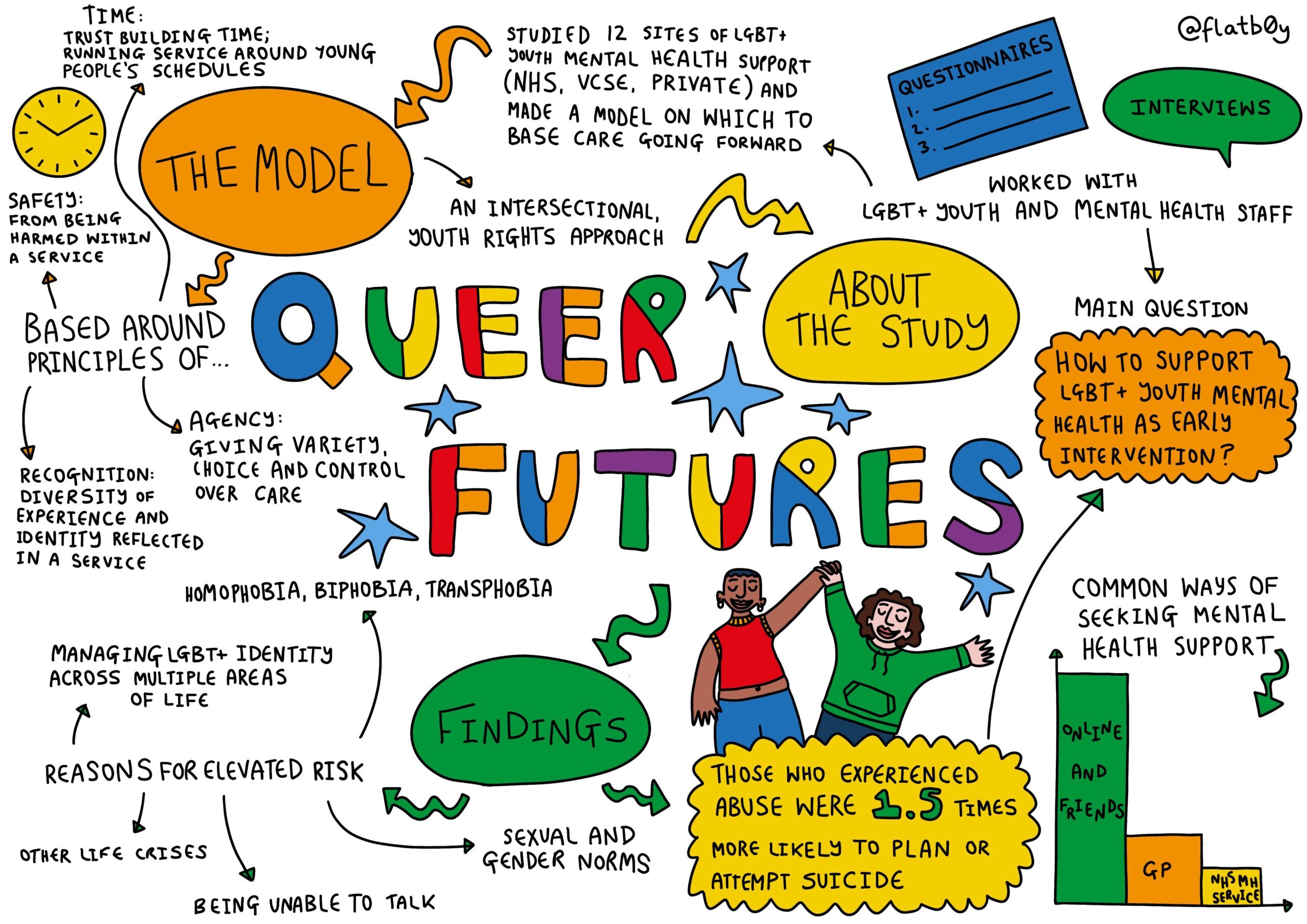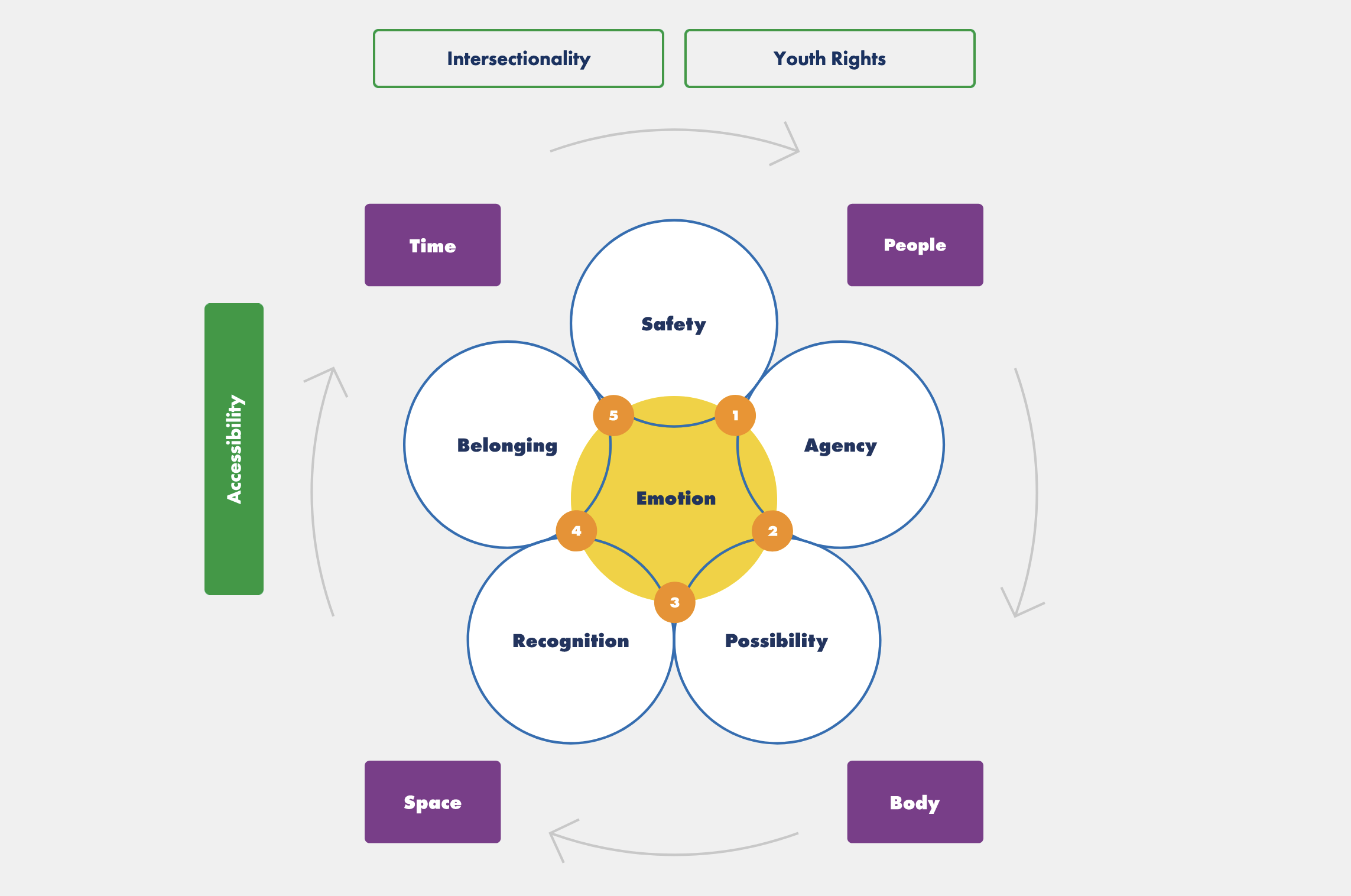Queer Futures 2 – Update
Justice, Equalities and Capabilities

LGBTQ+ young people report significantly higher rates of depression, self-harm, suicidality, and poor mental health than cisgender and heterosexual youth. Despite this mental health inequality, LGBTQ+ young people underutilise mental health services and have poor overall experience of support. The NIHR-funded Queer Futures 2 study, led by Professor Liz McDermott, is the first UK research to examine how to develop appropriate mental health early intervention and support for LGBTQ+ young people.
The results of the study suggest that intersectional youth rights should underpin the delivery of mental health support for LGBTQ+ young people to address the multiple marginalisation, isolation, and stigmatisation they may experience. This approach enables LGBTQ+ young people to make informed independent decisions about their own bodies and lives, and for the right to freedom of safe self-expression to be upheld. The model of early intervention mental health support for LGBTQ+ young people produced contains 13 principles (see figure – what works well).
The study, in consultation with LGBTQ+ young people, and other stakeholders, produced a range of outputs aimed at improving LGBTQ+ young people’s mental health at an early point. These include:
An interactive model of What Works?
to support LGBTQ+ young people’s mental health. This is aimed at young people, service commissioners and those delivering mental health support.
A What Works? checklist for services
‘Know your rights’ videos
Watch a series of videos for young people and a webinar explaining the What works? mode
NHS commissioning guidelines
A NHS Commissioning Guidance slide pack
An interactive model of What Works?
to support LGBTQ+ young people’s mental health. This is aimed at young people, service commissioners and those delivering mental health support.
A What Works? checklist for services
‘Know your rights’ videos
Watch a series of videos for young people and a webinar explaining the What works? mode
NHS commissioning guidelines
A NHS Commissioning Guidance slide pack

